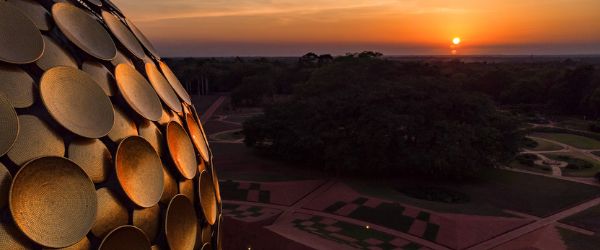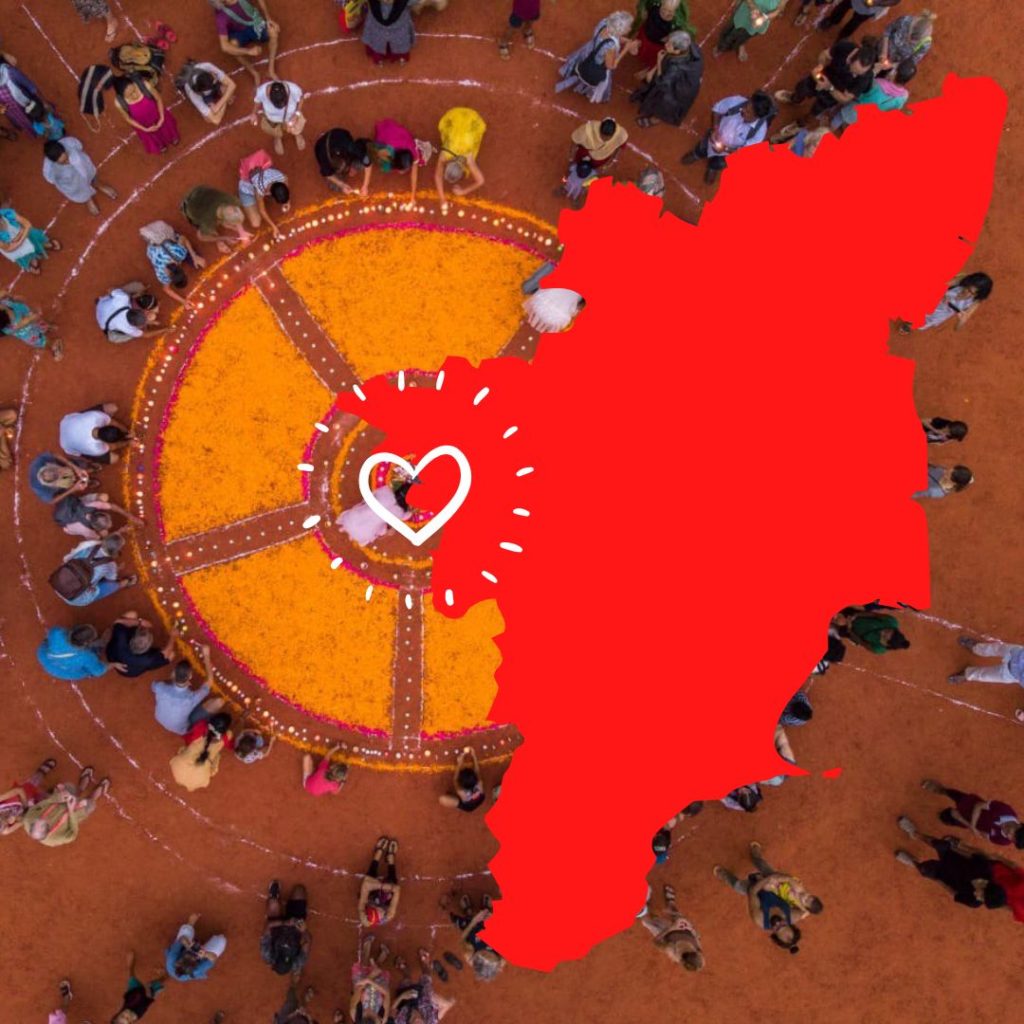Auroville: equality in reality
01.09.22
In moments of tension, it is easy to revert to “divide and rule”, inherited from dark eras of oppression. Sometimes this happens on purpose, but more often it is a tendency that surreptitiously takes hold of us and whispers in our ears: “beware of the Other, they are not like Us”. Needless to say, Auroville is in crisis and accusations of racism and neocolonialism are rife. How can we actively prevent repeating mistakes from the past, and deal with this toxic habit that is obviously antithetical to human unity?
Is Auroville a neocolonialist project?
It is very easy to look at Auroville and see a classic picture of “white colonialists against exploited locals”. The story of the rich white man stealing the poor local man’s land, the arrogant foreigner taking advantage of his money to exploit local workers, is so obvious that it almost tells itself. One does not need evidence, a gentle suggestion will suffice and the audience will swiftly make their conclusion. Guilty unless proven innocent!
This is the way propaganda works: no facts, just emotions. Appeal to symbols, attitudes and morals embedded in the target audience to trigger an emotional response that can be deep, powerful and long-lasting. Reducing the unfortunately complex reality into a simple story of good guys and bad guys – and “our side” obviously being the good ones. It gives us instant clarity, belonging and a quick rush of adrenaline.
This is the pattern we see repeated by populism and hate speech across the world. Take an existing difference and make it evil. A black man in the middle of a street full of white people will automatically stand out. Auroville is just that: an international township in the midst of the Indian countryside. Did anyone say “anti-national”?
The thing is…
More than half of the residents of Auroville are Indian nationals, from Tamil Nadu and other states. So Auroville is actually not that international. Additionally, none of the lands belong to the settlers, or their offspring. So Auroville is actually not owned by anyone.
To explain local inequality and imbalance of power, we need to look beyond race. Caste, religion, gender, sexual orientation and formal education play a big role, though less easy to observe. Then add money and power to the mix (both a symptom as well as a driving factor of inequality), and the picture becomes even more confusing.

What is Auroville?
- A UNESCO project endorsed 5 times
- >3,000 people from 60 countries
- An experiment in human unity
- A small town managing its school system, health clinics, waste…
Things are done differently, here in Auroville
Auroville attracted people from more than 60 countries. These people were craving for sense, and India’s diverse, deep and open cultural heritage offered them just that. Moreover, Auroville is in Tamil Nadu, known to be one of the most ancient civilisations in the world.
Many foreigners soon fell in love with vernacular skills and wisdom. They started studying them, applied them and, in some cases, helped save important knowledge from oblivion. Some Aurovilian “velakaras” (white-faces) can speak Tamizh and wield a mammoty (garden hoe), and their sambalam (income) is less than what people earn in neighbouring Pondy. At the same time, Indian Aurovilians and local non-Aurovilians learned many skills and ideas from their new “foreign” companions and also applied them in their lives.
Year after year, generation after generation, this exchange created a new culture where acceptance and diversity are core values. Unfortunately, it is hard to see, because it is so deeply integrated in the residents’ reality that few notice it anymore. It is just there, and, as such, often taken for granted.
In the social fabric of Auroville life, there is almost no difference between men and women. In its committees and companies, there are as many men as women. However, this balance of male and female energies has not been reached by imposing quotas. Quite the opposite. It was made possible because the norm here is that nobody works for fame, status and ego, for money or power; people are expected to work for the community, for the yoga, and everyone is equal when they walk the same path.
What is happening for gender can be seen in other areas: the colour of your skin, your family history, cultural background, religion, social reputation; many of these factors that separate people everywhere in the world have been either diluted or neutralised in Auroville.

“There should be somewhere on Earth …
a place which no nation could claim as its own, where all human beings of goodwill who have a sincere aspiration could live freely as citizens of the world and obey one single authority, that of the supreme Truth;
a place of peace, concord and harmony where all the fighting instincts of man would be used exclusively to conquer the causes of his sufferings and miseries, to surmount his weaknesses and ignorance, to triumph over his limitations and incapacities;
a place where the needs of the spirit and the concern for progress would take precedence over the satisfaction of desires and passions, the search for pleasure and material enjoyment.”
from “The Dream”, one of the constitutional texts of Auroville
